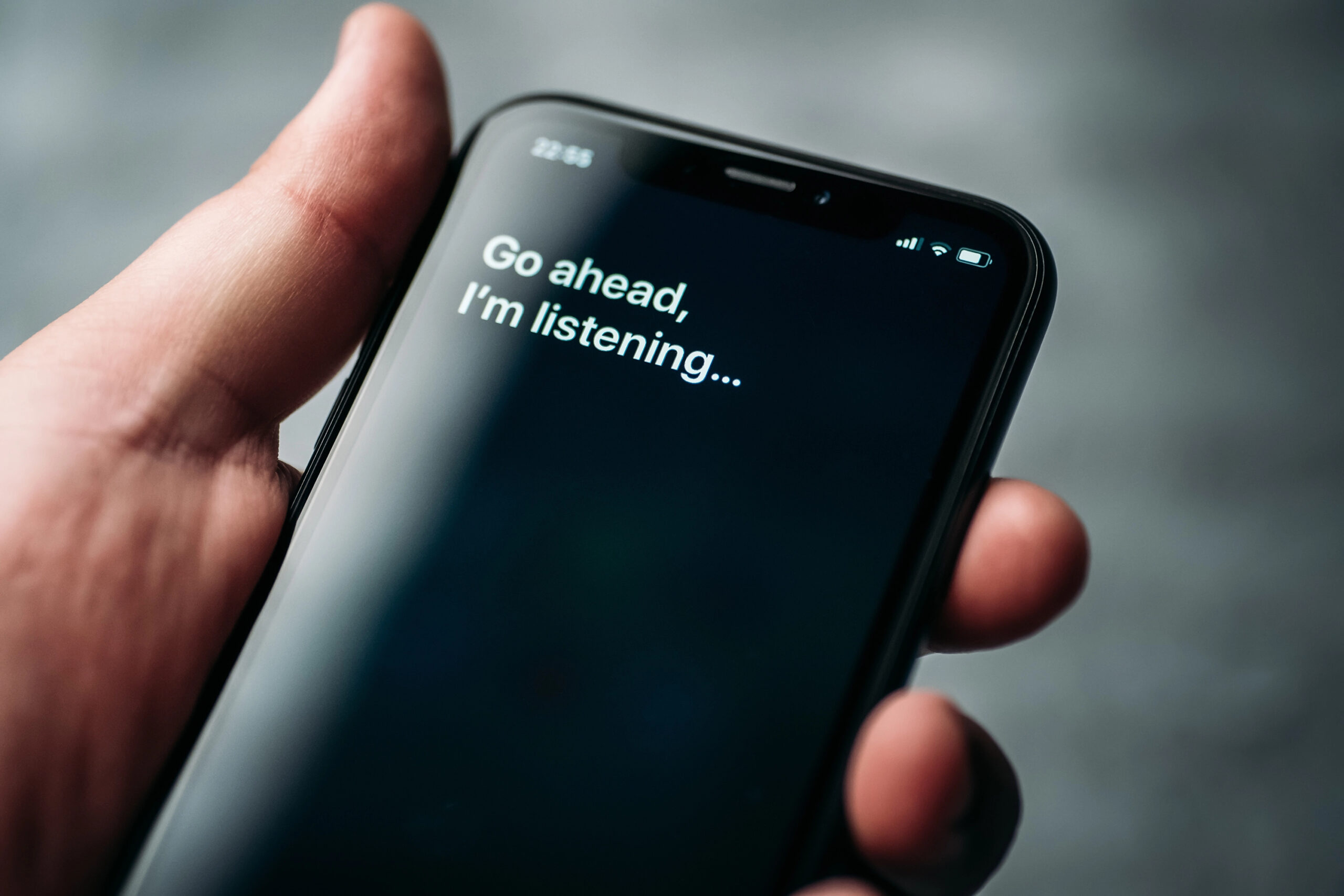In an era where technology seamlessly integrates into your daily life, Apple’s recent $95 million settlement serves as a stark reminder of the potential privacy pitfalls lurking within your smart devices. The class-action lawsuit, centered around Siri’s alleged unauthorized recordings and unintentional eavesdropping has shown the delicate balance between convenience and privacy in the digital age. As you navigate this landscape of voice-activated assistants and AI-driven technologies, it becomes increasingly crucial to understand the implications of these tools. This article delves into the details of Apple’s settlement, exploring the broader context of data privacy and the responsibilities of tech giants in safeguarding your personal information.
Siri’s Unintentional Eavesdropping: Apple’s $95 Million Settlement

The Accidental Listener Due To Siri’s Unintentional Eavesdropping
Apple’s virtual assistant, Siri, became the center of a privacy storm when users discovered it was inadvertently recording their private conversations. This unintended eavesdropping led to a class-action lawsuit against the tech giant, which resulted in a hefty $95 million settlement. The case highlights the delicate balance between convenience and privacy in our increasingly connected world.
Privacy Concerns and Data Sharing
Users reported alarming instances where discussing specific products led to targeted advertisements, suggesting unauthorized data sharing. This raised serious questions about the extent of information collected by Siri and how it was being used. The lawsuit alleged that these recordings were shared with third parties, including advertisers, without user consent.
Settlement Details and Eligibility
The settlement covers U.S. customers who owned Siri-enabled devices between September 17, 2014, and December 31, 2024. Eligible individuals may receive up to $20 per device, with the exact compensation varying based on the number of claims submitted. While Apple has agreed to the settlement, it’s important to note that the company denies any wrongdoing in the matter.
Unintentional Eavesdropping: Implications for Voice-Activated Technology
This case underscores the ongoing concerns surrounding the privacy implications of voice-activated assistants. As these technologies become more prevalent in our daily lives, it’s crucial for companies to implement stringent privacy measures and maintain transparency in their development and deployment processes.
Alleged Privacy Breaches and Unauthorized Data Sharing with Siri’s Unintentional Eavesdropping
Unintended Activations and Recording Concerns
The lawsuit against Apple centers on claims that Siri, the company’s voice assistant, inadvertently recorded users’ private conversations without their consent. These unintended activations allegedly led to the capture of confidential discussions, raising significant privacy concerns. Users mentioned specific products and saw targeted advertisements appear shortly after, indicating that third parties, including advertisers, may have accessed their recorded data.
Unintentional Eavesdropping Implicates User’s Trust and Data Protection
This case highlights the delicate balance between convenience and privacy in the era of voice-activated assistants. The alleged unauthorized data sharing not only breaches user trust but also raises questions about the extent of data collection and its potential misuse. As voice technology becomes increasingly integrated into our daily lives, the need for robust privacy safeguards and transparent data handling practices becomes paramount.
Broader Industry Implications
Apple’s settlement is a wake-up call for the tech industry. Other major players like Google face similar lawsuits, highlighting growing concerns over the privacy implications of voice assistant technologies. This case underscores the importance of implementing stringent privacy measures and maintaining transparency in the development and deployment of AI-powered assistants to protect user data and maintain consumer confidence.
The Lawsuit: Holding Tech Giants Accountable
The Rise of Voice Assistant Concerns
In recent years, voice-activated assistants have become ubiquitous in our daily lives. However, this convenience has come at a cost, as exemplified by the class-action lawsuit against Apple. The suit alleges that Siri, Apple’s virtual assistant, inadvertently recorded users’ private conversations without their consent. This case highlights the growing tension between technological advancement and personal privacy in the digital age.
Unintended Consequences of Always-On Technology Leading to Unintentional Eavesdropping
The lawsuit alleges that Siri unintentionally activated, and recorded confidential discussions, and shared them with third parties, including advertisers. Users reported instances where mentioning specific products resulted in targeted advertisements, suggesting unauthorized data sharing. This raises serious questions about the extent of data collection by voice assistants and the potential misuse of personal information.
Implications for the Tech Industry
Apple’s $95 million settlement, while significant, represents just one instance in a broader trend of legal challenges facing tech giants. Similar lawsuits have been filed against other companies, including Google, over their voice assistant technologies. These legal actions serve as a wake-up call for the industry, emphasizing the need for more robust privacy safeguards and transparent data practices in the development and deployment of AI-driven technologies.
Compensation for Affected Users After Unintentional Eavesdropping: What to Expect
Eligibility and Claim Process
If you owned a Siri-enabled Apple device between September 17, 2014, and December 31, 2024, you may be eligible for compensation. The settlement includes only U.S. customers, excluding international users from the payout. To claim your share, submit a request through the official settlement website once it’s live. Provide proof of ownership for your eligible devices.
Potential Payout Amount
While the exact compensation amount will vary based on the number of claims submitted, eligible individuals can expect to receive up to $20 per device. This means if you owned multiple Siri-enabled devices during the specified period, you could potentially receive a larger payout. However, it’s important to note that the final amount may be less if there’s a high volume of claims.
Timeline and Distribution
The proposed settlement is still awaiting approval from U.S. District Judge Jeffrey White. Once approved, a claims administrator will be appointed to manage the distribution process. You can expect to receive notifications about the claims process via email or mail. Payments will likely be distributed through various methods, including checks or electronic transfers. Keep an eye on the official settlement website for updates on the timeline and distribution methods.
Lessons Learned: The Future of Voice Assistant Privacy
Enhancing User Control
As voice assistants become increasingly integrated into our daily lives, the Apple Siri lawsuit serves as a wake-up call for tech companies. Moving forward, we can expect to see more robust privacy controls implemented across voice-activated devices. Users may gain granular control over when and how their voice assistants activate, with options to customize trigger words or even use physical buttons to initiate interactions.
Transparency in Data Collection
The settlement emphasizes the need for greater transparency in collecting, storing, and using voice data. Tech companies will likely adopt clearer disclosure policies, specifying what information is captured during voice interactions and how it is processed. This transparency may extend to regular privacy reports, allowing users to review and delete their voice data easily.
Advanced AI for Accuracy
To minimize unintended activations, companies will invest in more sophisticated AI algorithms. These improvements will help voice assistants better distinguish between background noise and genuine commands, reducing instances of accidental recording. Additionally, we may see the development of on-device processing capabilities, allowing voice data to be analyzed locally without sending it to external servers, further enhancing privacy.
Regulatory Scrutiny and Industry Standards
This case may prompt increased regulatory oversight of voice assistant technologies. We can anticipate the development of industry-wide standards for voice data privacy, possibly including third-party audits and certifications. These measures will restore user trust and ensure consistent privacy practices across different platforms and devices.
Key Takeaways
As you consider the implications of this settlement, remember that it serves as a stark reminder of the complex privacy landscape in our increasingly connected world. While voice assistants like Siri offer unprecedented convenience, they also introduce new challenges in safeguarding personal information. This case underscores the critical importance of remaining vigilant about your digital privacy and understanding the potential risks associated with smart devices. As technology continues to evolve, it’s essential that you stay informed about privacy policies, exercise caution when using voice-activated features, and advocate for stronger protections in the digital realm. Ultimately, the balance between innovation and privacy protection rests on the collective awareness and actions of consumers like yourself.
More Stories
Google’s AI Edge App Brings Offline Intelligence to Your Phone
The new AI Edge App from Google reshapes mobile technology as it brings artificial intelligence directly to your smartphone.
Roblox Farming Craze Fuels Surging App Store Economy
As you dive into the dynamic world of digital economies, one phenomenon stands out: the Roblox farming craze. This surge,...
DeepSeek R1-0528 Powers Open-Source AI Challenge to OpenAI and Google
In the fast-changing world of artificial intelligence, DeepSeek's new model, DeepSeek-R1-0528, stands out as a strong competitor. It challenges major...
Reddit Unleashes Dynamic Product Ads to Capture Shoppers at the Moment of Decision
Reddit has unveiled its latest innovation: Dynamic Product Ads (DPAs). This cutting-edge tool, now available in public beta, empowers advertisers to seamlessly capture the attention of potential buyers at the critical point of decision-making.
Microsoft Revives Command Line Editing with Lightweight ‘Edit’ Tool for Windows 11
Microsoft has reintroduced command-line text editing in Windows 11 with the launch of the lightweight 'Edit' tool. This move excites...
Veo 3 Unleashed: Google’s AI Video Model Redefines Creativity and Raises Deepfake Concerns
In an era where technology continually reshapes the creative landscape, Google's Veo 3 emerges as a beacon of innovation and...


